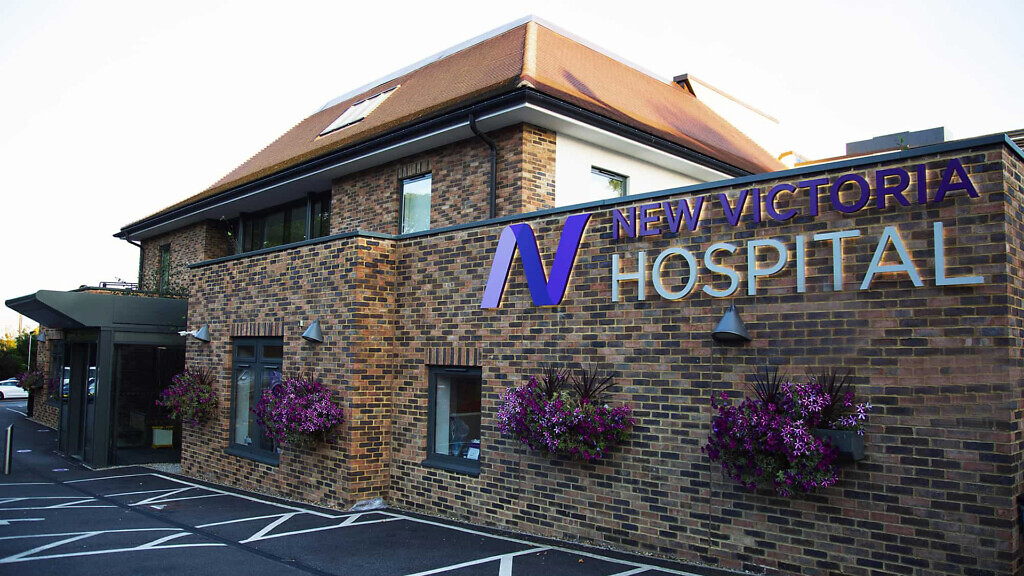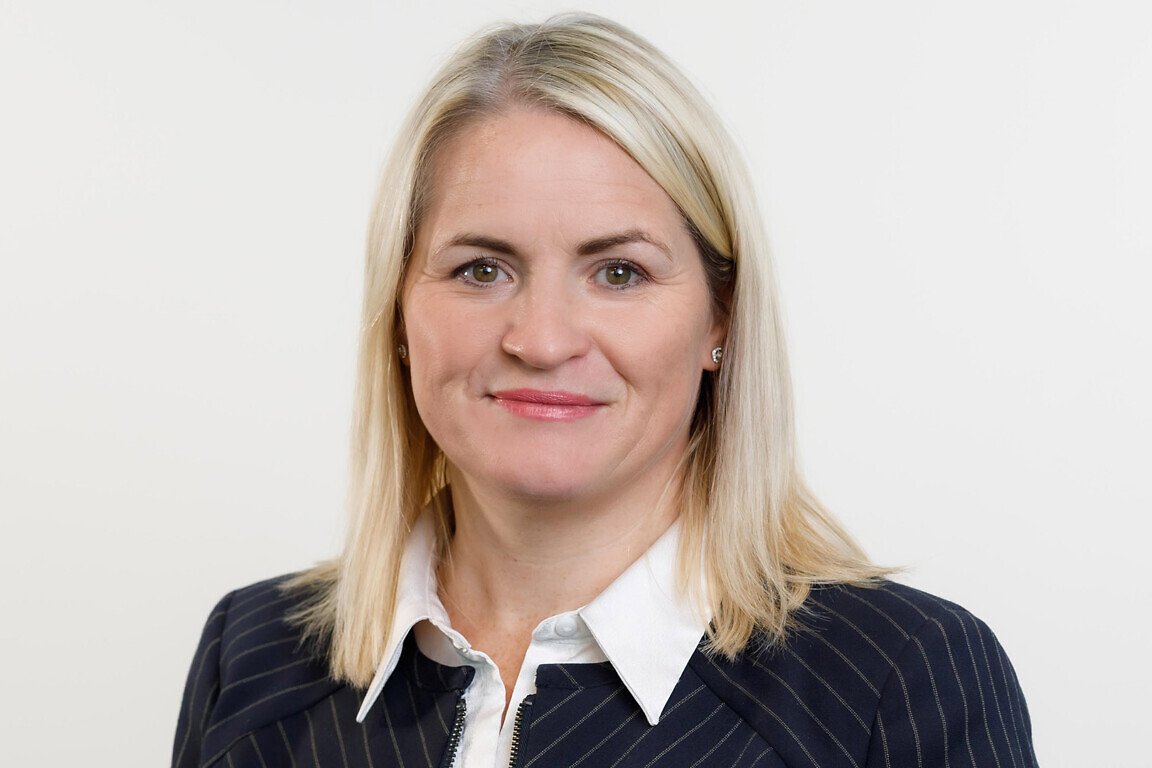The general manager of Bupa Health Services explains how the private healthcare group works with the NHS and how it is expanding in Britain.
Sarah Melia started off in Bupa in 2011 as a regional director in the care homes business before taking over as general manager of Bupa Health Services in 2021. Here she talks to Healthcare Today about complementing the NHS, the importance of mental health services and how it measures and improves customer satisfaction.
One of the themes of the year has been the government’s use of the private sector to ease waiting lists. How do you see Bupa complementing NHS services?
The public and private sectors have worked hand-in-hand for a long time, and Bupa has been part of that landscape for 78 years now. It’s safe to say that providing choice and access will always remain part of what we do – that’s a given.
Over the past couple of years, especially, we’ve done a great deal to expand provision. One example of this is our investment in primary care. We now have over 88 sites across the UK offering face-to-face primary care, and that number is still growing. Alongside that, we’ve also massively developed our digital services. This growth allows us to focus more effectively on prevention and early intervention.
We also see a major role for ourselves in the training and development of doctors and clinicians, offering them an alternative or complementary work environment to the NHS. We’ve worked hard to provide flexibility and to support ongoing training.
“We’re seeing a growing focus on employers providing healthcare support for their teams.”
Where is the demand for the private sector coming from? Is it via self-funded patients, or has there been an uptake in private medical insurance?
It’s really a combination. What we’re seeing is a growing focus on employers providing healthcare support for their teams, and it’s becoming quite an essential part of the employee benefits package – even more so than it used to be.
A lot of this employer-funded healthcare isn’t necessarily insurance-based; in some cases, employers are paying directly for services. There’s a strong emphasis on keeping people healthy and well at work, and supporting them in a more holistic way – particularly around mental health and women’s health. There’s a real recognition now that this kind of investment is important, and we’re seeing continued growth in that area.
Of course, there are also those who have private insurance, and then there are self-pay customers – people who simply want the convenience and accessibility. That’s especially true for services like primary care appointments or menopause consultations. These aren’t huge costs – they’re not thousands of pounds – so increasingly people are saying, “I’ll just pay for that this time,” particularly when they’re struggling to access care otherwise.

Recruitment is an industry-wide problem for the healthcare sector. How do you cope with that?
We do have pockets where things are more challenging than others, but we’re really trying to focus on value – making employees feel as valued as possible. That might sound obvious, but it’s fundamental. Flexible working is a big part of that – being as adaptable as we can be with our teams – along with investment in training and development.
A great example of the kind of people we support is our health advisers, who carry out assessments. Many of them join us straight out of university, often in their very first job. We try to give them as much training and support as possible so they can see the career path they might take within Bupa. Some stay with us long term, while others go on to work in the NHS or elsewhere.
Ultimately, it’s about showing people they’re valued – offering clear career pathways, meaningful development opportunities, and trying to make the workplace as enjoyable as possible.
Clinical negligence is on everyone’s mind because of the recent NHS Resolution figures. How are you geared up to deal with clinical risk and clinical negligence liabilities?
Obviously, this is something that any healthcare business has to be really open to, alert to, and aware of. But we’ve got strong teams in place, and robust lines of defence – both locally and across the wider Bupa group. We dedicate a lot of time and attention to identifying and managing risks – not just clinical risks, but more broadly as well.
It’s about making sure our people are well trained, well supported, and aware of the policies and procedures in place. We make it clear who they can speak to, and we ensure they know how to raise concerns. We have open channels, regular audits, and second-line checks – all of which contribute to a healthy and transparent culture.
We’re set up in a really strong way, with solid leadership, good management, and clear governance structures underpinning everything we do.

Bupa recently acquired New Victoria Hospital – the first since 2008. Was that an opportunistic move or does it indicate a shift in strategy?
Where it’s appropriate, and where we can provide more care directly to our customers and patients, we absolutely look to do that. We do have a strategy in place to expand our own provision, but that doesn’t mean we’re moving away from working with the many brilliant providers we already partner with. In fact, direct provision still accounts for a relatively small percentage of our overall services, simply because we have more than four million insurance customers in the UK – and that requires a great deal of capacity.
That said, when the right opportunity arises, we’ll take it. New Victoria was a great example – a perfect location, just outside London, where a large proportion of our customer base lives. It’s a really well-positioned hospital, and it integrates nicely with both our clinics and Cromwell Hospital in that area. Together, they form a strong local network, offering everything from day care to more complex procedures.
We are always looking – but we’re certainly not about to go out and buy hundreds of hospitals or stop working with others.
“We want to provide care where our customers need it most, and we know that mental health services are becoming increasingly difficult to access.”
Bupa recently announced that it would open 70 mental health centres across the UK in response. What drove that decision?
We want to provide care where our customers need it most, and we know that mental health services are becoming increasingly difficult to access – at the same time as more and more people are seeking them out. It’s really important that we do what we can to make accessing mental health support as easy as possible.
This initiative was driven both by demand and by our desire to create environments where people can choose face-to-face support if that’s what works best for them. That’s quite hard to find in the UK at the moment, as so many providers are working remotely, doing calls from home or over Teams. We wanted to offer an alternative. We already offer a lot of telephone and virtual appointments, but this gives people the option of coming in and speaking to someone in person, whether it’s for counselling, cognitive behavioural therapy (CBT), psychotherapy or psychology – all in a setting that feels appropriate and safe.
We also want to use these Mind Place hubs to connect with local communities and employers, where possible, to share good practice and become Centres of Excellence. It’s an important part of our wider purpose – helping people live longer, healthier, happier lives – and this is a way we can really contribute to that by helping people be happier and feel supported.
It’s still early days. It’s taken us a little while to get some of the clinics fully up and running, but the initial signs are really promising. The response has been excellent. A lot of the companies we work with – our corporate and business clients – have been genuinely delighted to hear that we’re supporting their teams with mental health services.
How does Bupa measure and improve customer satisfaction in health services?
Feedback is important – whether it’s positive or negative, we want to hear it all. We’ve developed a strong customer insight programme. We use NPS (Net Promoter Score) to measure some of our services, but we also use something called Net Emotional Value. That tells us how people feel about the service, or what word they’d use to describe it – which is a brilliant way of getting more nuanced feedback.
As part of that insight work, we give people the chance not only to leave a score about how satisfied they were, but also to give live feedback.
We’ve got teams who are responsible for the customer journey, and they’re expected to listen to that feedback and create action plans based on what they hear. We think of it as capturing “micro moments” – small, powerful insights into how we can improve the customer journey. As leaders, we’re also expected to listen. And I say “expected”, but actually, I really enjoy it. If I’ve got a spare ten minutes, I’ll log in, scroll through some of the services in my area, pick one, press play – and it gives me a real sense of how things are landing with customers. I’ll often email a team and ask, “What was going on here? Why was this the experience?”
Just in my part of the business this year, we’ve acted on around 450 pieces of feedback – where we’ve directly changed something as a result of what a customer told us. Sometimes it’s something small, like fixing a clunky two-click process that people found annoying. But it can also be something bigger.
I think we’ve built a good system – and the more people see how it genuinely improves our services, the more they embrace it.



